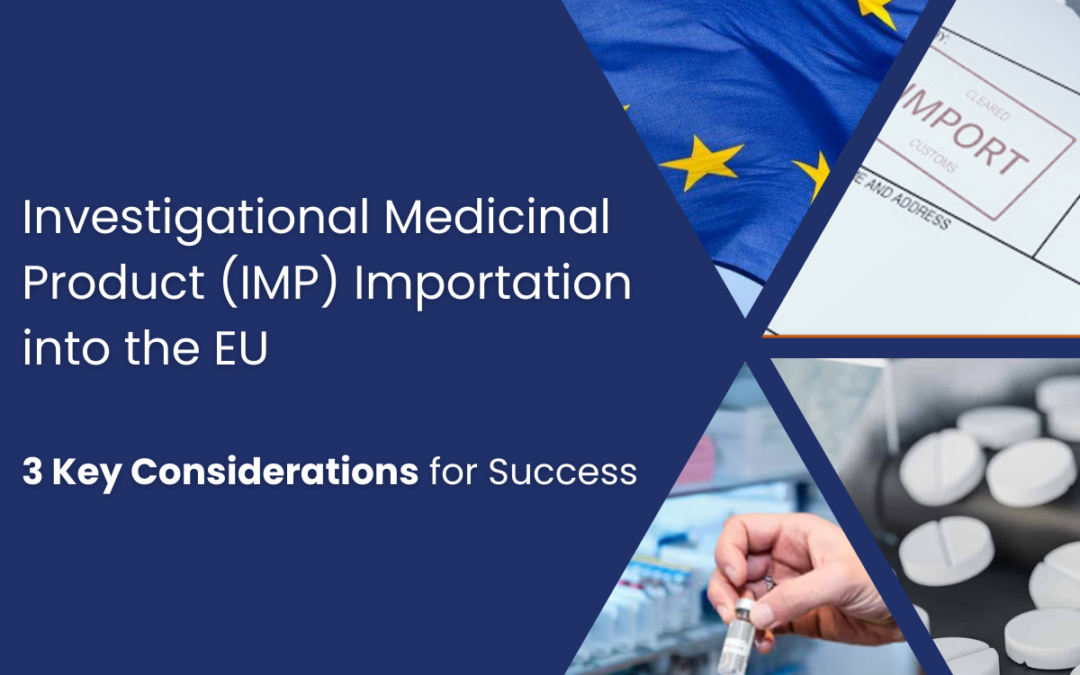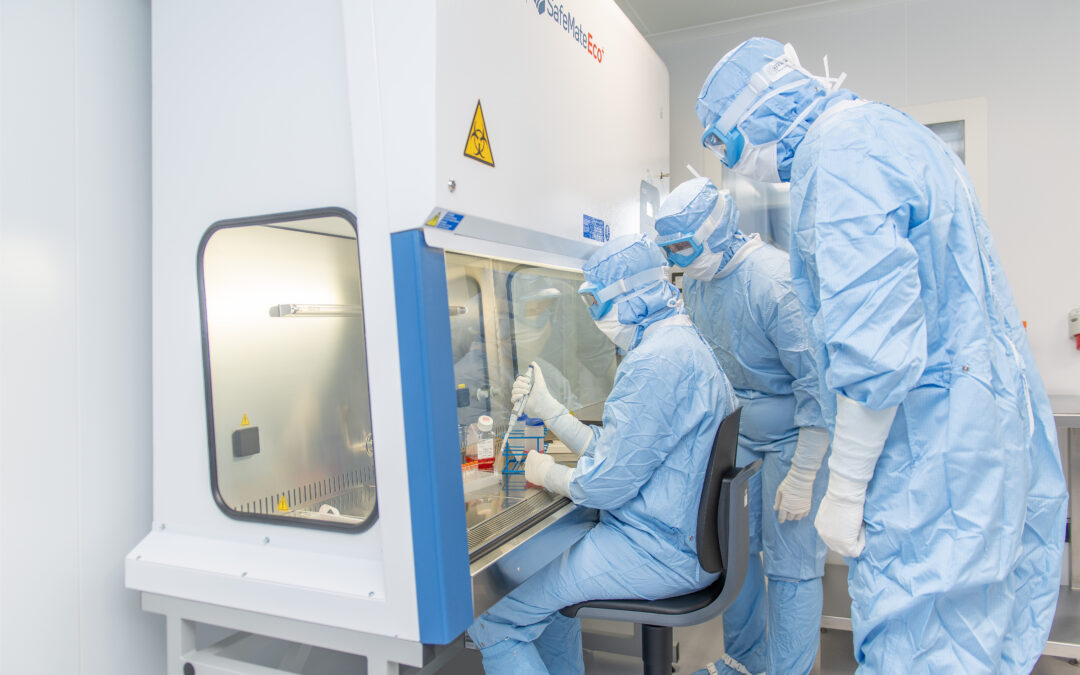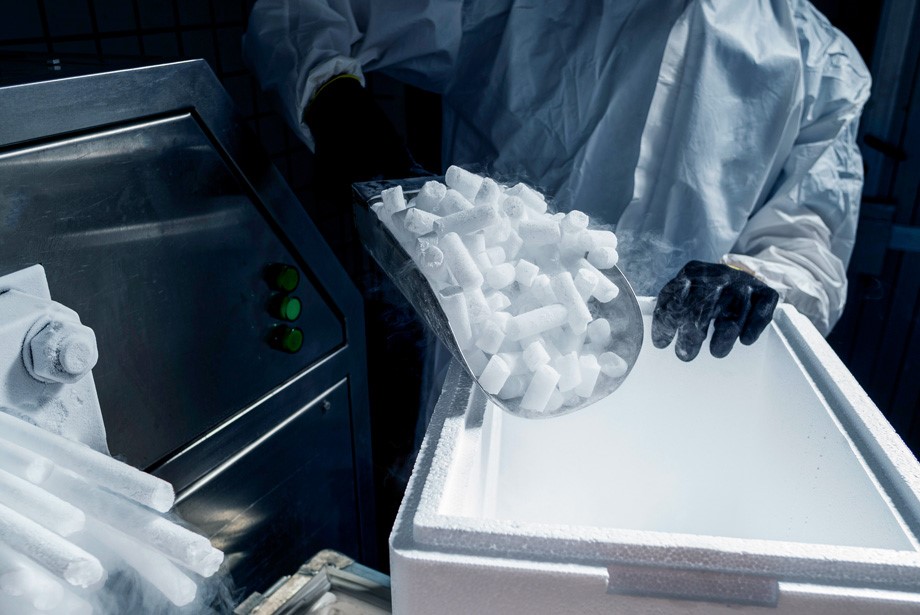
by jgao | Apr 7, | HiTech Health Latest News
If you are planning on conducting clinical trials in the EU and are importing Investigational Medicinal Products (IMPs) then there are many factors to consider prior to clinical trial initiation. An IMP refers to a medicinal product that is being tested or used in a clinical trial to evaluate its efficacy, safety, or pharmacokinetics. The term is defined under the European Union’s Clinical Trials Regulation (EU) No. 536/2014 and applies to any medicine (including vaccines, biologics, cell or gene therapies) that is used in the context of clinical research. Commencing the journey to conduct clinical trials in the EU involves navigating both the specific country and general EU requirements, which is an intricate task.
Here are a few key considerations when importing IMPs into the EU:
1. Regulatory Authorisation
Prior to importing IMPs into the EU for use in clinical trials, you must submit a Clinical Trial Application (CTA) to the National Competent Authority (NCA) in the EU member state where the trial will take place. The CTA is a critical component of conducting clinical trials in the EU. If the proposed clinical trial involves multiple EU countries, the European Medicines Agency (EMA) and the Clinical Trials Regulation (CTR), which came into force in January 2022, provide a centralised process for multi-country trials. However, individual country regulations may still apply and it is recommended to discuss your clinical trial strategy with a regulatory expert.
2. Manufacturer’s /Importation Authorisation (MIA)
A Manufacturer’s/Importation Authorisation (MIA) is required if a company is involved in manufacturing and/or importation activities relating to human, veterinary or investigational medicinal product, within the EU as per GMP Annex 21. The term manufacturing and/or importation includes manufacturing, primary packaging, secondary packaging, physical importation of medicinal products or batch certification of medicinal products. To conduct clinical trials in the EU, it is not required that the Marketing Authorisation Holder (MAH)/Sponsor of the IMP hold their own MIA or hire an internal Qualified Person (QP) but they may partner with a company like HiTech Health who already hold MIAs in both the EU and UK and have a deeply experienced QP team in place. This can save you substantial time and money, thus enabling the MAH/Sponsor to commence clinical trials sooner.
3. Storage and Distribution Controls
Organisations are required to have appropriate controls in place for managing the storage and distribution of IMPs. Compliance with Good Distribution Practice (GDP) will help ensure safety, security and high product quality throughout the EU clinical supply chain. In some cases, IMPs need to be stored in a licenced depot or distribution centre in the EU, which must be approved for storing IMPs. Companies should consider how product temperature requirements will be maintained throughout the importation, storage and distribution activities.
HiTech Health holds both EU and UK MIAs as well as the ability to act as IOR for both the EU and the UK, allowing us to support global clients in overcoming complex challenges of importing IMPs and conducting clinical trials Europe as well as the UK. Our team have extensive hands-on experience with all aspects of importing IMPs into the EU/UK for clinical use including complex products such as cell or gene therapies, where direct to site importation is often required. By partnering with HiTech Health, our team guide you through the EU requirements and allow you to focus on other core business areas such as product development, clinical studies, and market access planning.
Schedule a call with our team today to learn more about our services and how we can support your organisation.
IE: +353-1-9631489 | UK: +44-20-30267419 | US: +1-857-3265835
Email: info@hitech-health.com

by jgao | Feb 5, | HiTech Health Latest News
Ireland has a strong track record of attracting major investment from the largest pharma companies in the world. The foundation of Ireland’s life sciences industry has been the small-molecule sector and has since developed expertise in biologics manufacturing. Ireland is home to nine of the world’s top 10 pharmaceutical companies and is the world’s third-largest pharmaceuticals exporter. The country has proven to be a successful gateway to the EU, UK, US, and other RoW markets, with companies availing of the operational, financial, and geographic benefits of setting up here or partnering with Irish-based companies. World-class regulation is an important element of that. Ireland has an exemplary compliance record with agencies like the US Food and Drug Administration (FDA) and the European Medicines Agency (EMA), both of which work closely with Ireland’s Health Products Regulatory Authority (HPRA).
The Growing Demand for Cell & Gene Therapies in Europe
There is rapidly growing diversity in therapeutic pipelines, including advancements in Cell & Gene Therapies Manufacturing. The global Advanced Therapeutic Medicinal Product (ATMP) market size was valued at USD 27.04 billion in 2022 and is expected to grow at a compound annual growth rate (CAGR) of 16.8% from 2023 to 2030. The emergence of cell and gene therapies has transformed the pharmaceutical industry and disease treatment landscape. It has opened new routes for the treatment of incurable diseases and several cancer types. The success of products such as Kymriah, Zolgensma, and others is the key factor driving the market.
Why Ireland for ATMP and Cell and Gene Therapy Manufacturing?
Ireland is actively supporting the growing field of cell and gene therapy, and companies are capitalising on the list of benefits that Ireland affords them. The Irish government is committed to making the country a global leader for the development, manufacture, supply, and adoption of advanced therapies, including cell and gene therapies and novel vaccines, through strong investment in world-class training and academic development, an innovative research base, and excellent clinical trials infrastructure. This synergy between industry and academia, bolstered by strong government support, has contributed to Ireland’s competitive edge in attracting and retaining talent in advanced therapies. For developers of cell and gene therapies, Ireland offers research and development incentives, access to an extensive network of clinical trial sites, and the availability of providers who have exemplary track records with regulatory authorities.
Key benefits of establishing ATMP manufacturing in Ireland include:
- World-class regulatory environment ensuring compliance with EMA, FDA, and HPRA standards.
- Strategic location offering seamless access to the EU, UK, and global markets.
- Tax incentives and R&D grants for biopharmaceutical companies.
- Highly skilled workforce with specialised expertise in advanced therapy manufacturing.
- Strong collaboration between industry and academia, fostering innovation in advanced therapies.
Comprehensive ATMP Manufacturer and Cell & Gene Therapies CDMO in Europe
HiTech Health is an ATMP Manufacturer in Europe, positioned at the forefront of Ireland’s Cell & Gene Therapies CDMO sector. Our EU GMP-certified manufacturing facility supports the development and manufacturing of advanced therapies from a strategic European base. HiTech Health was the first Irish company to secure a licence to contract manufacture cell and gene therapies on behalf of international clients. As a leading ATMP Manufacturer in Europe, our team of experts facilitates the transformation of a promising new therapy idea from initial development to the GMP manufacture of a drug to treat patients in a clinical environment, helping to accelerate the journey of advanced therapies towards commercialisation. Our GMP facility is equipped with cutting-edge technology designed to advance the development, production, and testing of sterile formulations.
HiTech Health also provides consulting services to biopharma companies to develop, launch, and support products. We hold Manufacturer’s / Importer’s Authorisations (MIAs) in both the EU and UK to seamlessly support companies with batch importation and release for clinical and commercial use. HiTech Health is working with early-stage developers to provide end-to-end cell & gene therapy CDMO services as well as batch approval and supply to clinical sites. For companies located outside Europe, we can support navigating the landscape for advanced medicines across all EU countries. Unlike the traditional pharmaceutical CDMO model, HiTech Health also has a logistics team to support the shipping and storage of time and temperature-sensitive therapies. Our expertise as a Cell & Gene Therapies CDMO allows us to provide comprehensive solutions tailored to the needs of biotech innovators and pharmaceutical companies.
Our full range of services to accelerate cell and gene therapy commercialisation, covering but not limited to:
- GMP manufacturing of ATMPs for clinical and commercial use.
- Regulatory consulting to support EMA, FDA, and HPRA approvals.
- Batch importation and release for the EU and UK markets under our Manufacturer’s / Importer’s Authorisations (MIAs).
- End-to-end CDMO services for early-stage developers.
- Logistics solutions for time and temperature-sensitive therapies.
- Clinical trial support, ensuring seamless supply chain management.
If you’d like to connect with a member of our team to learn more about our cell and gene therapy manufacturing services, please email info@hitech-health.com.
References
Enterprise Ireland – Pharma
IDA Ireland – Biopharma
Grand View Research – ATMP Market
HiTech Health – Cell and Gene Therapy Facility Launch
HiTech Health – Key Considerations for Selecting a Cell and Gene Therapy CDMO

by jgao | Jan 21, | HiTech Health Latest News
HiTech Health are delighted to have an article entitled ‘Cell and Gene Therapy Manufacturing Considerations for Early Stage Companies’ published in distinguished publications, cellandgene.com and outsourcedpharma.com. The article should be of benefit to companies who are looking for a partner to develop and manufacture their clinical products.
Read the full article by clicking here: https://www.cellandgene.com/doc/cell-gene-therapy-manufacturing-considerations-for-early-stage-companies-0001
HiTech Health is a leading European CDMO and service provider for ATMPs. Learn more about our cell and gene therapy services by clicking here
Schedule a call with our team today to learn more about our services and how we can support your organisation.
IE: +353-1-9631489 | UK: +44-20-30267419 | US: +1-857-3265835
Email: info@hitech-health.com

by jgao | Sep 24, | HiTech Health Latest News
Temperature is a critical parameter in the transportation and storage of medicinal products. The temperature must be controlled and monitored from the manufacturing site through to the distributor and site of medicine use. When temperatures go outside the specified range, there is a risk that the medicine may alter and degrade with the potential for adverse outcomes for the patient. In addition to this, there may be significant financial losses for the medicinal product owner.
The manufacturing of medicinal products is highly regulated with strict GMP quality control standards to ensure that a high-quality medicine is provided to patients. When it comes to transportation, it is just as important to maintain the same level of quality standards and ensure medicinal products are not compromised during the many touchpoints that can occur between the sending and receiving sites. Good Distribution Practice (GDP) is a set of standards, guidelines, and principles for the storage and transportation of pharmaceutical products. Developers must implement robust processes to guarantee the quality and safety of their products during distribution. GDP compliance can help avoid major quality impacts and potential product recalls.
Medicinal product shipments can generally be categorised as:
- Ambient (controlled room temperature, 15°C to 25°C)
- Refrigerated (2°C to 8°C)
As transportation may involve many modes of transport including road, air and sea, then continuously controlling and monitoring temperature can be challenging. Furthermore, cross border customs checks can cause unwanted delays. There is a risk that custom checks can interfere with outer packaging and cause exposure of the medicinal products to outside temperatures. The sensitivity of new advanced therapies such as cell and gene therapies increase the demand on both the shipping system and on the integrity of the entire temperature-controlled supply chain.
The FDA’s 21 CFR Part 11 guidance addresses the traceability challenges of electronic temperature records. Records must be reliable and accurate to ensure the quality and safety of the medicinal product. Pharmaceutical companies are strongly advised to use calibrated temperature monitoring dataloggers that can generate accurate and reliable reports. In addition to this, electronic records of all alarms and events must be kept.
With so many variables in transportation, successful shipments depend on reliable transportation and the correct choice of shipping system for the type of medicinal product. Using shipping systems that are validated and appropriate for the medicinal product is crucial. Performing shipping qualification studies is advised to ensure that a system is in place for seamless transportation and quality assurance.
To help navigate the challenges with temperature control, it is key to find partners experienced in handling complex medicinal products. HiTech Health have a team Responsible Personnel (RPs) who are specialists in GDP and can advise and support you with:
- Minimising supply chain risks and ensuring compliance with applicable regulations
- Shipping qualification studies
- Due diligence and auditing of transportation providers
We can work with your team to ensure that effective processes are established to ensure that high quality medicinal products are available for patients on time.
Schedule a call with our team today to learn more about our services and how we can support your organisation.
IE: +353-1-9631489
UK: +44-20-30267419
US: +1-857-3265835
Email: info@hitech-health.com
Web: www.hitech-health.com

by jgao | Feb 22, | HiTech Health Latest News
In Europe, no batch of medicinal product can be released prior to certification by a Qualified Person (QP). Due to the rapidly evolving Advanced Therapeutic Medicinal Products (ATMP) landscape, it’s important to have up-to-date knowledge, expertise as well as years of experience managing Quality aspects of product and process development, to successfully release CGT product to clinical trials or to market in the EU, US, UK, and RoW.
QP batch release is required to be in accordance with EU requirements (Commission Delegated Regulation (EU) 2017/1569 and Regulation 536/2014) on Investigational Medicinal Products (IMP) covering both sterile and non-steriledosage forms. QP and Quality Services offered by Hitech Health include contractual QP services, for both general Quality consultancy and batch release, for short and long-term contracts.
The QP and Quality Services include:
- Supporting and maintaining all aspects of Quality Management System (QMS) compliance.
- Designing and implementing a robust supplier qualification program and effective management of this process.
- Importation and QP Certification.
With Hitech Health holding the Manufacturer’s/Importer’s Authorisations (MIAs) for the importation and QP certification of both Commercial and Clinical products within the EU, CGT products can be imported and released to EU clinical trials in a matter of months.
Hitech Health has QPs specialising in the CGT and ATMP field and can offer quality support for the successful release of your CGT product. By partnering with us and working with our experienced cross-functional team under our already approved MIAs, you reduce personnel and regulatory cost, thereby making considerable financial and time savings in getting your product to the clinic or market.
To learn more about our cell and gene therapy services by clicking here
Find us on LinkedIn
Contact: info@hitech-health.com





